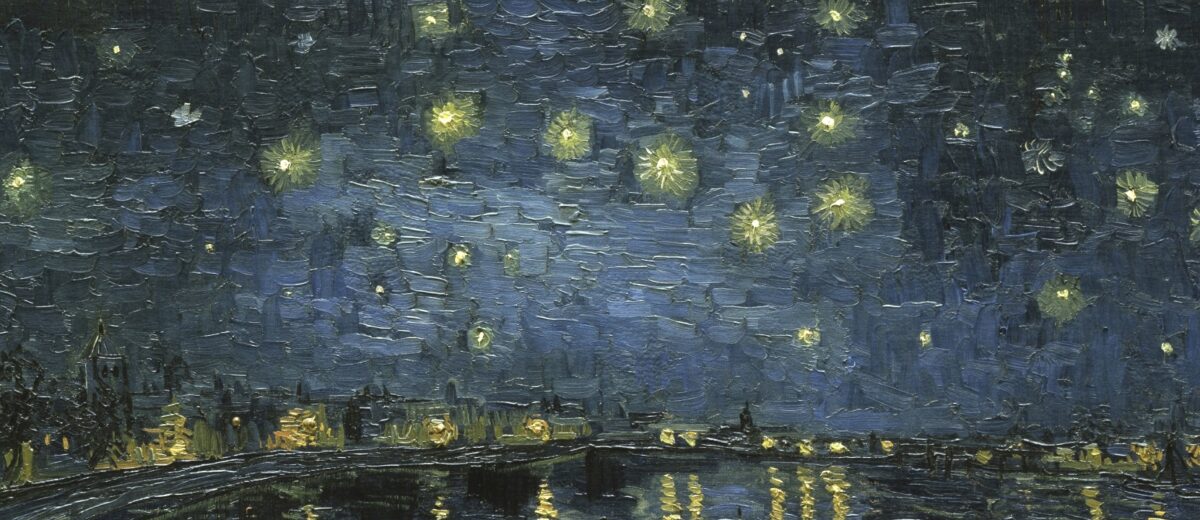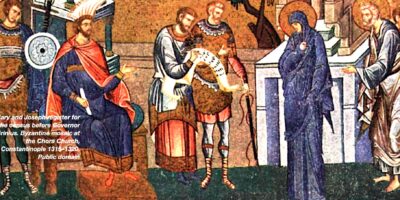During these long dark nights of winter (tonight is the longest) we find ourselves drawing hope, light and inspiration from the stars.
When the cloudy night sky hides the stars from our sight, we make our own. They appear in street decorations, shop windows, as cookie shapes and atop our Christmas trees.
Stars have always inspired wonder and hope. Long ago our ancestors thought our fate was determined by the stars. Many seem to be returning to that ancient belief these days. Even in atheistic circles, the star has been a symbol of inspiration. Soviet architecture was invariably topped by a great red star, the symbol of revolution.
Yet stars have always made humans think of eternal things and of transcendence. Like the Psalmist, we gaze into the clear night sky and marvel at all the stars, being overwhelmed by the unfathomable size of the cosmos and by the mystery of our human existence:
When I consider your heavens, the work of your fingers, the moon and the stars, which you have set in place, what is mankind that you are mindful of them, human beings that you care for them? [Psalm 8]
As toddlers we sang, ‘twinkle, twinkle, little star, how I wonder what you are…’ As we grew older, we learnt that a star was simply a ball of fire unimaginably far away. In fact, that point of light we see as we look up into the night sky is not where the star is now; it’s where it was umpteen years ago when the light rays now reaching us left on their long journey.
Irrational
Scientifically there’s no basis of hope in that. So why do stars inspire us? Especially that star the Wise Men followed to Bethlehem, featured in countless school plays this past week? How irrational is that? There are shooting stars and satellites that look like stars. But stars don’t just move slowly across the skyline and stop over individual houses! That sounds more like a UFO! Or a drone.
Irrational it is. As is the human fascination for stars, especially in this season. And the universal longing for meaning, spirituality, justice, beauty, freedom and the harmony of right relationships. None of these values can be fully rationalised, yet they resonate in each human heart. We know somehow that they belong to ultimate and eternal realities. The angels’ message of ‘peace on earth and goodwill to all men’ still resonates in human hearts everywhere – especially after 1035 senseless and tragic days of war in Ukraine.
Against all reason, the star remains a universal symbol of hope and aspiration. Vincent van Gogh himself found hope and comfort in the stars. “When all sounds cease, God’s voice is heard under the stars”, he wrote in his journal. The constellations of the night sky spoke of “the love of God and make one think of the words, ‘Lo, I am with you always, even unto the end of the world’,” he wrote once to his brother Theo.
Enchanted
Vincent’s famous work, Starry Night, with its swirly turbulent night sky, expressed his own spiritual journey from darkness and hypocrisy in his experience of the Dutch church to his encounter with God in nature. It’s worth remembering that this work was painted in a very dark phase of the artist’s life, during his 12-month stay in a mental asylum – a work that continues to inspire millions globally.
His less famous Starry Night on the Rhone (above) was painted the previous year (1888) and underlines his long-term fascination for stars. He himself wrote: ‘Be clearly aware of the stars and infinity on high. Then life seems almost enchanted after all.’
Last month I stood on the spot where Vincent had painted this scene, where the Rhone flows through Arles in southern France. But I saw no stars. No doubt they were there, as Vincent had seen them. But the daytime made them invisible. Our own solar system’s star – the sun – overpowered them. For we only see stars when it is dark. And they shine brightest in the darkest night.
When Paul exhorted the Philippians to ‘shine like stars’ (2:15), he assumed they were living in a world of darkness. He wasn’t thinking of the Christmas season when he wrote those words. Christmas as we know it didn’t yet exist. He and his fellow believers were living in a very pagan culture, surrounded by ‘a warped and crooked generation’. Against that dark background, Paul wanted the lives of the Philippians to ‘shine like stars’.
However dark our circumstances are right now this Christmas – facing wars, sickness, corruption, disappointment – Paul encourages us to ‘shine like stars’.
Till next week,




This is a very interesting article!